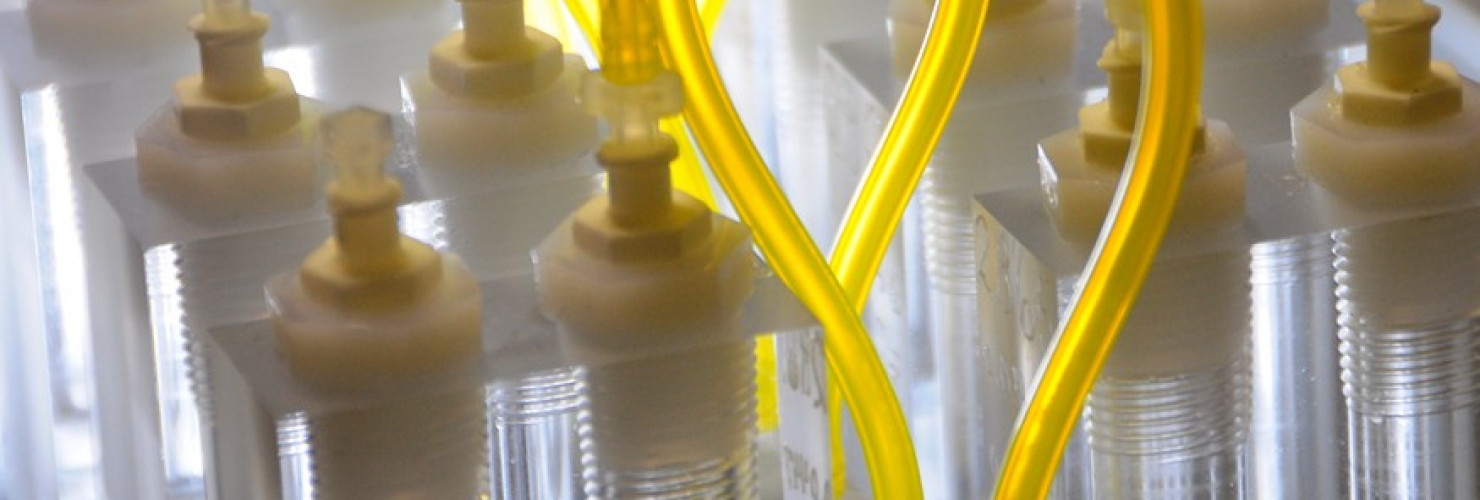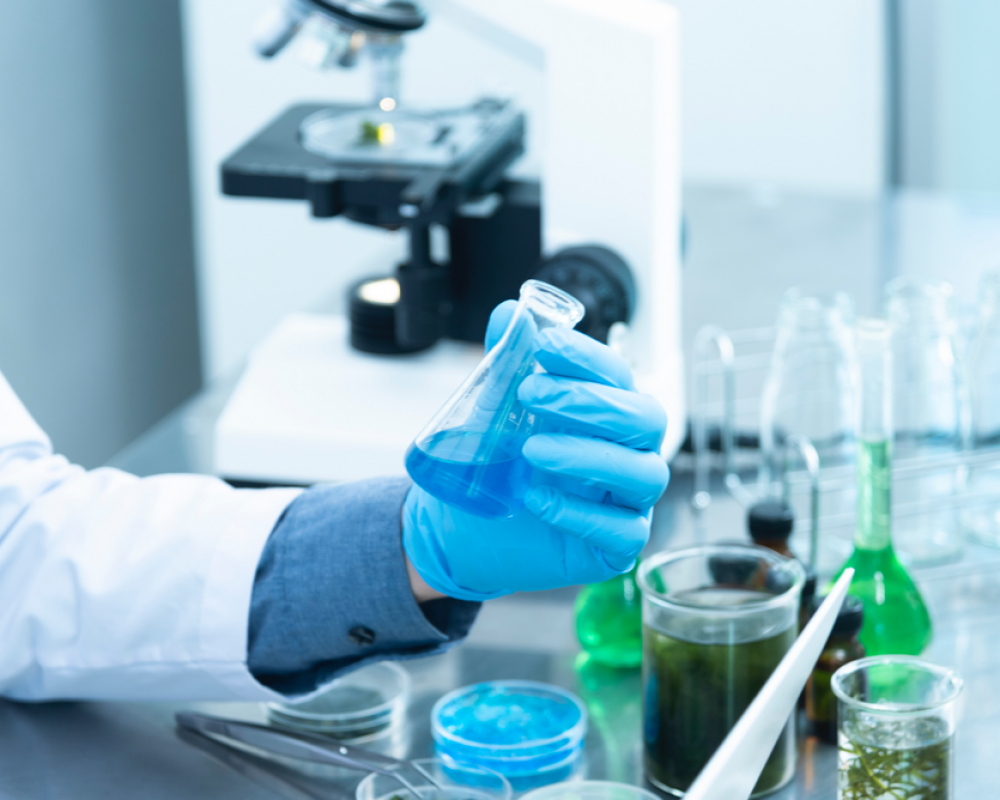
Novel supplement boosts the biomethane production in anaerobic digestion reactors
The Biorenewables Development Centre (BDC) worked with Clayton Hall Farm Biogas Products Ltd to measure the effect of a novel additive on anaerobic digestion (AD) and biogas output. The recent project delivered by the BDC through the ERDF-funded business assist resulted in a significant improvement of the AD process performance.
Additive increases biogas ouotput
As the new zero-carbon emission legal commitments are now part of the Climate Change Act, further developments in low-carbon footprint technologies are required to meet these targets by 2050.
Anaerobic digestion (AD) is a well-proven technology that has been used in the UK for over 100 years to treat sewage sludge. AD is a microbial process in which a consortium of various microorganisms breaks down organic waste to biogas – a mixture of biomethane and CO2. Biogas can be combusted directly to produce electricity and heat or can be purified to natural-gas equivalent (biomethane) for injection into the gas network or for use as a transportation fuel.
Financial support from the government such as the Feed-In-Tariffs (FiTs) or Renewable Heat Incentive (RHI), were introduced in early 2010 to boost biogas and biomethane production via AD. This resulted in an expansion of the AD market in the UK. Currently, 486 AD plants treating food and agricultural waste and including 84 biomethane to grid sites, are in operation in the UK. However, this year the Feed-In-Tariffs (FiTs) scheme has ended, meaning that the AD plant owners must reduce the cost of their operations or boost their output to make their business viable.
Clayton Hall Farm Biogas Products Ltd is an on-farm AD plant with potential 1000 kWe capacity to treat 13,620 tonnes of food waste and energy crops annually producing combined heat and power, generating electricity for nearly 3,000 local households. As the amount of biogas output varies depending on the feedstock and operational parameters, Clayton Hall Farm Biogas Products Ltd has been interested in improving the process by manipulating the system with a novel supplement.
Clayton Hall Farm Biogas Products Ltd was eligible for the BDC’s ERDF pre-funded projects to test and research their product called OpenSesame®. The company used the BDC’s AD pilot-scale system which includes state-of-the-art facilities with eight 30L reactors, on-line gas detection system and biomethane potential analyser to quickly realise the potential of its product. The support and expertise from the BDC team generated a series of experiments to investigate the effect of the additive on biogas output. The results showed that the amount of biogas doubled in the reactors receiving the supplement and the presence of extra ingredients was essential to improve biomethane production.
Alexandra Jukes who is a Technologist at the BDC and performed the experimental work commented, When trialled in our batch biomethane potential system we saw an increase in methane production and better stability between replicates. It will be interesting to see how this product works with other feedstock and inoculum.
The outcome of the project shows that the AD process can be manipulated, and the microbial community can adapt to changing conditions which results in an increase of the biogas output. This is welcome news to many small and medium-size AD plants that can improve the performance of their reactors to generate higher yield biogas and reduce digestion time.
The owner of Clayton Hall Farm Biogas Products Ltd, Neil Gemmell, whose company was a finalist in the AD Research and Innovation award 2018 and highly commended in the AD Hero of the Year category at the recent AD and Bioresources Association industry awards ceremony commented:
.
We think that the work of the BDC has been invaluable in enabling a small SME, such as ours, to progress a product which we hope will become a major export opportunity and show the product has great potential to reduce feedstock usage and hence facilitate new agricultural practices, Neil Gemmell, Clayton Hall Farm Biogas Products Ltd
486 AD plants in UK treating food and agricultural waste
Clayton Hall Farm AD plant treating 13,620 tonnes of food waste and energy crops annually
Clayton Hall Farm generating energy for 3,000 local households
Note to editors:
This project has received funding from the England European Regional Development Fund as part of the European Structural and Investment Funds Growth Programme 2014-2020.
The York, North Yorkshire and East Riding (YNYER) LEP awarded a grant of £1M to the BDC as part of the Local Growth Fund (LGF) support which funded the equipment used to carry out this project. For more information visit: https://www.businessinspiredgrowth.com/funding/local-growth-fund/
